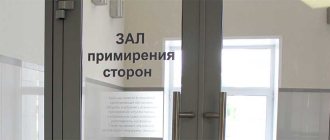My name is Tatyana and I am a specialist from the Ministry of Health. In this article, I will tell you what to do and where to file a complaint if you were denied medical care in a hospital, and I will give a clear algorithm of actions in such a situation.
Every year, the department notes an increase in the number of complaints from the population about refusals of medical care. Such requests are received through the Compulsory Health Insurance Fund (MHIF), the prosecutor's office, Roszdravnadzor, all of them are recorded in the electronic document management system. One of the reasons for the current situation is that citizens do not know their rights. This opens up scope for medical abuse. Another reason is that people who need urgent help are in a vulnerable position, which unscrupulous health workers can take advantage of (for example, to demand a bribe).
The Russian Federation has a system of compulsory health insurance (CHI) and voluntary health insurance (VHI). In the first case, we are talking about free medical care within the framework of the territorial program of state guarantees approved in the Russian Federation and in the regions, in the second - about free care only within the framework of the services listed in the insurance contract. And we will start with the regulatory framework that regulates the rights and obligations of medical workers in terms of providing free medical care.
Normative base
- Article 11 of the Federal Law of November 21, 2011 No. 323-FZ “On the fundamentals of protecting the health of citizens in the Russian Federation”, which does not allow refusal to provide medical care or charging for its provision, if the program of state guarantees of free provision of medical care stipulates that such assistance should be provided to all persons insured in the compulsory medical insurance system free of charge.
- Decree of the Government of the Russian Federation dated December 8, 2017 No. 1492 “On the Program of State Guarantees for the provision of free medical care to citizens for 2022 and for the planning period of 2022 and 2022.”
- Regional programs of state guarantees of free medical care, which contain a list of private healthcare organizations that provide medical care within the framework of compulsory medical insurance. They can be found on the official websites of regional ministries/departments of health or on information stands of medical organizations. You can find them in the “Programs” or “Documents” section. For example, for Moscow for 2022 there is a program at the link.
If you are refused a paid clinic
The algorithm described above is suitable for combating the inaction of municipal medical institutions operating in the compulsory health insurance system. With private specialists the matter is somewhat more complicated. They provide services within the framework of an agreement signed with the patient. The document reflects all the obligations of the parties.
If the doctor violated the terms of the contract, then it is necessary to file a claim:
- to the manager;
- Rospotrebnadzor.
[youtube id=”DM4wGM5qp3Q” title=”What to do if you are denied medical care”][/youtube]
What kind of help is provided free of charge?
As part of the State Guarantee Program, all citizens with a compulsory medical insurance policy are provided with the following types of assistance free of charge:
- Primary health care represents the first stage of interaction between a citizen and medicine. Its main focus is preventive, for example, vaccinations, fluorography, medical examination. When a citizen turns to a medical organization, the first thing he is offered is to visit a therapist/pediatrician, who, after studying the medical history, refers him for tests and to “narrow” specialists.
- Specialized care that can be provided in a hospital setting (including in a day hospital). This type of assistance is provided by “narrow” specialists in the profile of the disease (for example, pregnancy management, labor, various operations, etc.). A subtype of this group is high-tech care, which consists of the use of complex, unique treatment methods using special equipment (for example, operations related to organ transplants, prosthetics, etc.).
- Palliative care is a type of care aimed at relieving pain and alleviating various manifestations of diseases (for example, staying in a hospice for “severe” patients).
A separate point is emergency medical care, which should be provided to citizens regardless of whether they have a compulsory medical insurance policy.
Within the framework of all the above types, it turns out, including free of charge:
- IVF - in vitro fertilization, a method of treating infertility;
- chemotherapy and radiation therapy for cancer;
- medical rehabilitation is a set of measures aimed at recovery after an illness. May include physical therapy, massage, medication, etc.;
- dialysis - treatment of kidney failure using an “artificial kidney” device by purifying the blood;
- medical examinations;
- dispensary observation of citizens according to indications;
- neonatal screening - examination of a newborn child for hereditary diseases by taking blood from full-term children on the fourth day of life, from premature babies - on the seventh day of life (screening is carried out for all patients; a record of this is kept in the medical record);
- audiological screening of newborns consists of a hearing test; carried out to all children without exception;
- prenatal diagnosis of child development disorders.
Medical assistance can be of 3 types:
- Planned - preventive medical care, which is carried out for diseases and conditions that are not accompanied by a threat to the patient’s life, does not require urgent medical intervention and is not associated with a threat to the patient’s life; for example, a repeated course of treatment. The frequency of procedures depends on the citizen’s condition and is determined by his attending physician.
- Urgent (appears in cases of deterioration of a citizen’s condition, but without obvious threats to his life).
- Emergency (we are talking about sudden, acute illnesses; refusal to provide such assistance is not allowed, even if there is no compulsory medical insurance policy). Such assistance is provided when there is a threat to the patient’s life - for example, a chronic disease has worsened, an acute condition has occurred, or a myocardial infarction.
Where can you turn if medical assistance is not provided?
If you believe that your rights to receive medical care by a healthcare institution have been violated, you have the right to contact:
- To the administration of the medical organization where medical care was provided (chief physician, head of department, deputy chief physician).
- To the insurance organization that issued the compulsory medical insurance policy (the telephone number is indicated on the policy form or on the company’s website).
- Territorial body of the Compulsory Medical Insurance Fund.
- Territorial body of Roszdravnadzor.
- Regional Ministry of Health (health department).
- Regional government (the highest executive body of government).
- Prosecutor's office.
- Public associations, deputies.
- Ministry of Health of the Russian Federation, Compulsory Medical Insurance Fund of the Russian Federation, Roszdravnadzor of the Russian Federation, Prosecutor's Office of the Russian Federation and other federal bodies.
- Administration of the President of the Russian Federation.
- Court.
Reasons for refusal to provide medical care
The practice of working in the Ministry of Health of the region and working with citizens’ appeals made it possible to identify the main reasons for refusal by medical workers to provide assistance:
1 Lack of appointment. In this case, the patient needs to find out whether there is a possibility of recording at all (who is doing it, what days it is on, whether there is publicly available information about it). To do this, you can contact the institution's registrar.
2 Providing an incomplete range of post-operative/rehabilitation measures. For example, the doctor did not include some necessary medicine in the prescription list because it was not available in the hospital. Or additional procedures are needed that the patient cannot get into due to a queue or appointment, although according to indications he is entitled to these procedures out of turn.
3 Misleading citizens and imposing paid services on them, including the offer to pay for them personally to the doctor. For example, a patient needs to undergo surgery to replace the lens of the eye. He has the right to do this free of charge as part of compulsory medical insurance. However, the employees of the medical institution are forcing him to install an improved “model” of the lens, citing arguments about its durability, better adaptation, etc., although for this patient the lens that is required under the policy would be suitable for solving his problem.
4 Refusal to join a medical organization or change the attending physician.
The legislator does not limit a citizen’s ability to receive medical care to his place of registration. Moreover, the compulsory medical insurance policy is valid throughout the Russian Federation, and a citizen has the right to contact any medical institution operating within the compulsory medical insurance framework in order to receive the service free of charge.
According to Part 2 of Article 21 of the Federal Law dated November 21, 2011 No. 323-FZ “On the fundamentals of protecting the health of citizens in the Russian Federation,” to receive primary health care, a citizen chooses a medical organization, including on a territorial-precinct basis, no more often than once a year (except for cases of change of residence or place of stay of a citizen). In the selected medical organization, a citizen makes a choice no more than once a year (except in cases of replacement of the medical organization) of a general practitioner, local physician, pediatrician, local pediatrician, general practitioner (family doctor) or paramedic by submitting an application personally or through your representative addressed to the head of the medical organization. You must have your passport and compulsory medical insurance policy with you.
You can attach to a medical organization even if there is no permanent registration, only temporary. The regulation on the organization of primary health care for the adult population, approved by Order of the Ministry of Health and Social Development of the Russian Federation No. 543n dated May 15, 2012, does not contain a rule on the possibility of refusing a citizen the choice of a medical organization on a territorial basis.
Case No. 33-1002/2016 dated January 26, 2016 Samara Regional Court.
Citizen O. applied to a medical organization with an application for attachment, to which she was given a negative response with the argument that she lives in another area of the city. O. wrote a second application, which she refused and went to court. The court of first instance took the side of the medical organization and emphasized that patients have the right to choose a doctor and a medical institution, but since the plaintiff changed her place of registration, her care in this hospital will mean an increased burden for the medical institution and will ultimately reduce the availability of services for other patients . In this case, the priority of the patient’s interests when providing him with medical care is implemented in the ways listed in Art. 6 of Law No. 323-FZ on a closed list. According to this list, the hospital’s capabilities take precedence over the patient’s desire to be served outside of his place of registration.
The appellate instance did not agree with these arguments and pointed out that the territorial principle is not a basis for refusing to join a medical organization, especially since the compulsory medical insurance policy is valid throughout the entire territory of the Russian Federation.
As a result of the consideration of the case, the plaintiff was assigned to the hospital, received compensation for moral damage, and the institution was obliged, among other things, to pay a fine to the regional budget.
5 Lack of a “narrow” specialist in the clinic and lack of referrals for consultations to other medical organizations.
How to correctly draw up a refusal to hospitalize
Any documentation is generated in accordance with current state laws. Despite the fact presented, there is no clear and approved form for writing an informed refusal. Often in the clinic it is enough to write a statement by hand, in the text of which you need to indicate the following data:
- data of the head physician of the medical institution;
- data of the applicant - a patient refusing inpatient treatment (full name, age, telephone number for contact, address of registration and actual residence);
- the reason for refusing hospitalization is often written “for family reasons”, “for personal reasons”;
- the text indicates that the applicant has no claims against the medical institution and the clinic staff;
- it must be stated that the applicant assumes full responsibility;
- At the end, the date of drawing up the application and the signature of the applicant are indicated.
If the application is drawn up by a representative, the applicant’s details are indicated in the header of the document. Further in the text it is necessary to describe whose interests the applicant represents and all the patient’s data.
Writing a refusal to hospitalize does not negate the opportunity to see a doctor again if necessary. Repeated visits may also result in hospitalization. The patient, if desired, has the right to write a refusal to be admitted to the hospital again.
Algorithm for citizens' actions when denied medical care
A situation where medical care is denied always causes a conflictual reaction on the part of the patient. The first thing to do is to calm down and ask the doctor about the reasons for the refusal, and also remember the office number and ask for the name of the employee who is talking to you.
The next step is to contact the head or head of the institution for clarification. As a rule, this is enough. You will be given an appointment either for the next day or the issue will be resolved with an immediate appointment if there are medical indications for this.
If the situation is not resolved, to immediately get an answer to your question, a citizen can call the hotline of the territorial division of the Compulsory Medical Insurance Fund or the regional Ministry of Health. All conversations on hotline numbers are recorded automatically; therefore, if a citizen was not helped, he can write a complaint to the department to which the call was made, indicating the time and subject (details) of the call.
If the situation does not require urgency, we file a complaint with Roszdravnadzor or the prosecutor’s office. As supervisory authorities, they will review the application within 30 days of registration and, if necessary, inspect the hospital.
The appeal is made in simple written form; the applicant indicates the name of the state body or local government body to which he is sending the appeal, as well as his last name, first name, patronymic, postal address to which the response should be sent, sets out the essence of the complaint, puts a personal signature and date. If necessary, in support of his arguments, the citizen attaches documents and materials or copies thereof to the written appeal.
In addition to writing, the applicant can fill out an application form on the official website of the department in the region or make an appointment for a personal appointment with the head (deputy head).
At the entrance to a medical organization, next to the registration desk, there should be a stand that contains information about the procedure for filing a complaint against the actions of medical personnel, as well as a list of paid and free medical services provided by the institution.
If there is no stand or it is not properly decorated, you can consult about whether the service is free of charge from the insurance company that issued the compulsory medical insurance policy or from the territorial division of the Compulsory Medical Insurance Fund. If time allows, we recommend reading the provisions of the territorial program of state guarantees of the region on the official website of the Ministry of Health of the subject.
If you have been asked to pay for a doctor's services, under no circumstances give the money to the doctor personally; only through the institution's cash desk.
For reference! If a citizen, while undergoing inpatient treatment, purchased at his own expense the medications specified in the doctor’s prescriptions, he can reimburse their cost by submitting an application to the organization’s chief physician, enclosing receipts. I recommend making a copy of the medical record with prescriptions (an extract from it) so that it does not later turn out that such medications were allegedly not prescribed.
Consequences for the doctor and the hospital
An assessment of the actions of medical personnel who refused to help a patient will be given taking into account the consequences of their refusal and the positions held by these employees:
Have a question for a lawyer? Ask now, call and get a free consultation from leading lawyers in your city. We will answer your questions quickly and try to help with your specific case.
Telephone in Moscow and the Moscow region: +7
Phone in St. Petersburg and Leningrad region: +7
Free hotline throughout Russia: 8 (800) 301-39-20
- If a doctor refuses to see you, a disciplinary sanction will be imposed on him. But if his refusal resulted in the death of the patient, then the prosecutor’s office will open a criminal case for negligence leading to the death of a person. The punishment may be imprisonment.
- Receptionists who refuse to admit a patient will incur penalties on the hospital.
As for the ambulance dispatcher, they cannot refuse to call a brigade. There are criminal penalties for this.
Arbitrage practice
Patient appeals to court can be divided into 2 groups:
1 Dissatisfaction with the services provided. In this case, the patient is a consumer, and the case will be considered within the framework of the Law of the Russian Federation of 02/07/1992 No. 2300-1 “On the Protection of Consumer Rights”.
Example:
I. had problems with nasal breathing; She underwent two operations, but could not get rid of the problem. She went to court to recognize the doctors’ actions as incompetent and to compensate for damages. The courts of first and appellate instances sided with the medical organization. The plaintiff went to the Supreme Court, which, by its decision, returned the case for a new trial, indicating in the ruling (No. 5-KG17-176 of 12/05/2017) that the doctors violated the procedures for providing medical care, as indicated in the Rospotrebnadzor inspection carried out on the plaintiff’s statement, but the courts of first and appellate instances missed this fact. The result of the consideration of the case: the plaintiff was paid compensation for the expenses incurred for the operation and moral damage.
Features of such cases:
- the plaintiff does not pay the state fee;
- As part of the case, an examination of the provision of medical care and the consequences is almost always carried out;
- The plaintiff has the right to claim compensation not only for material (for example, the cost of a repeat operation to correct a doctor’s “mistake”), but also for moral damage.
2 Refusal to provide medical care and compensation for material/moral damage that was a consequence of such refusal.
Such claims can be filed either by the patient himself or by his relatives if the latter is deceased or incapacitated. For example, a citizen was admitted to the hospital, the doctor on duty examined him, did not consider the case an emergency and refused hospitalization. The patient returned home and died there. Another option is that the attending physician did not pay attention to the patient’s complaints and did not prescribe additional examinations and tests. As a result, the patient's illness worsened.
When going to court, the plaintiff must know that his main weapon is a strong evidence base. It is necessary to keep all receipts, doctor’s prescriptions, appointment sheets, applications to a medical organization, etc. The court takes everything into account! You need to make a copy of your medical record in advance (before going to court, until the necessary information is “removed” from it). To do this, write an application addressed to the head of the medical organization and wait for an invitation to review the documents.
If a citizen is illegally denied access to the documentation, he has the right to file a complaint with the regional Ministry of Health, Roszdravnadzor or the prosecutor's office.
In practice, refusal to review a medical card is extremely rare and is often due to the fact that the card was lost. In this case, it must be restored for the period for which this is possible (data from electronic document management, archive, etc.).
The second aspect is the purpose of the examination. Most likely, the medical organization will insist on conducting an examination if the citizen’s health has been harmed, and he associates it with the refusal to provide medical care/inadequate care. I recommend filing a petition with the court and asking the expert questions that, in your opinion, can resolve the case in your favor. The examination is ordered by the court by its ruling/ruling. It is carried out by independent expert medical institutions, the list of which can be found in court or you can offer your own version, taking into account whether the organization can carry out a specific type of examination. Examples of questions for experts could include the following:
- whether the doctor prescribed treatment within the framework of the standards of medical care (each disease has its own standard; you can find them on the Internet, in the Reference Information: “Procedures for the provision of medical care and standards of medical care,” prepared by the ConsultantPlus system)
- whether there was a cause-and-effect relationship between the doctor’s actions and the consequences that occurred;
- whether the doctor could have chosen a different treatment method given this history.
Example:
On July 08, 2014, the Privolzhsky District Court of Kazan made a decision in the following case. I. contacted a medical organization for surgical intervention. The operation was not entirely successful; I. suffered damage to her health, which she repaired in another health care institution. The court of first instance did not satisfy her demands against the defendant medical organization, arguing that I. signed an informed voluntary consent and understood what she was getting into. The Court of Appeal did not agree with this, clarifying that such consent does not imply informing the patient about the possible unfavorable outcome of the operation. Moreover, the case materials and the conclusions of the forensic medical examination established a cause-and-effect relationship between the doctor’s actions and the resulting consequences. The plaintiff received compensation for moral and material damage, and the medical organization paid a fine to the regional budget.
Mediation
In each region of the Russian Federation there is a division of the Medical Chamber of the Russian Federation, which, on the one hand, protects the rights of medical workers, on the other, is called upon to be a guarantor of fairness in resolving a patient/doctor dispute. For this purpose, a mediation procedure has been introduced into the activities of the chamber - pre-trial resolution of disputes through negotiations between the parties with the participation of an intermediary - a mediator.
To protect violated rights through the mediation procedure, you can contact the Mediation Center (pre-trial dispute resolution) “Medical Chamber” of the region, or send your application by email (contacts can be found on the website of the “Medical Chamber” of the subject). The National Medical Chamber of the Russian Federation maintains a register of mediators and issues them permission to carry out activities in the field of medicine; Regional centers are gradually being created in each region of the Russian Federation, which operate free of charge. Contacts of the national medical chamber for more information: +7 495 959 2896, email You can also obtain data from regional medical chambers.
The procedure looks like this:
- a meeting is scheduled at which the citizen and medical worker state their demands;
- a specially trained mediator, who is not an interested party, conducts negotiations;
- if the parties have reached a common decision, this is documented;
- if consensus is not found, the patient has the right to use other methods of protection.
Contacting the Medical Chamber is free and does not oblige the patient to any subsequent actions if the dispute resolution option proposed by the mediator and the doctor does not suit him.
Remember
- Within the framework of compulsory medical insurance, a citizen has the right to primary, inpatient and palliative care, both planned and emergency. Emergency medical care is provided regardless of the availability of a policy.
- If medical care is refused, the patient has the right to appeal to various authorities, from the head physician of the hospital to the court and the administration of the President of the Russian Federation. A complaint can be submitted in person, by letter or by email. It's free.
- If a particular procedure or service can be carried out under the policy, healthcare providers have the right to offer a paid option, but not impose it.
- A citizen has the right to choose a hospital and attending physician. Lack of registration at the location of the medical institution is not a basis for refusing to admit a patient.
- In the event of an unreasonable refusal of medical care, the patient has the right to demand compensation for physical, material and moral damage in court.
- Pre-trial, peaceful resolution of the dispute is possible through the mediation procedure.
- You should definitely familiarize yourself with the territorial program for the provision of free medical services for your region.
Video for dessert: 8 of the strangest time capsules from the past
Additional payment for consumables
Irina took her son to the orthodontist to correct his dental bite. Before installing the plate, the doctor said that I needed to purchase some additional parts. The woman went to the manager and found out that everything she needed was available. Only the quality leaves much to be desired, so the doctor immediately gives a list of what needs to be purchased.
How to be
Free procedures under compulsory medical insurance do not involve any additional costs. If you are asked to pay for materials, sending tests to another institution, or deciphering the results, complain to the insurance company. Running out of time? Then go through the procedures for a fee or purchase what you need, keeping all receipts and receipts. A medical institution that refuses free care will have to compensate you for the amount you spent. The exception is situations when you are offered a choice of two options: use compulsory medical insurance materials or purchase more expensive and high-quality ones.
Carefully check the contract you sign at the clinic. There should not be a clause stating that you refused free services due to a long wait and agreed to a fast, but paid option.








